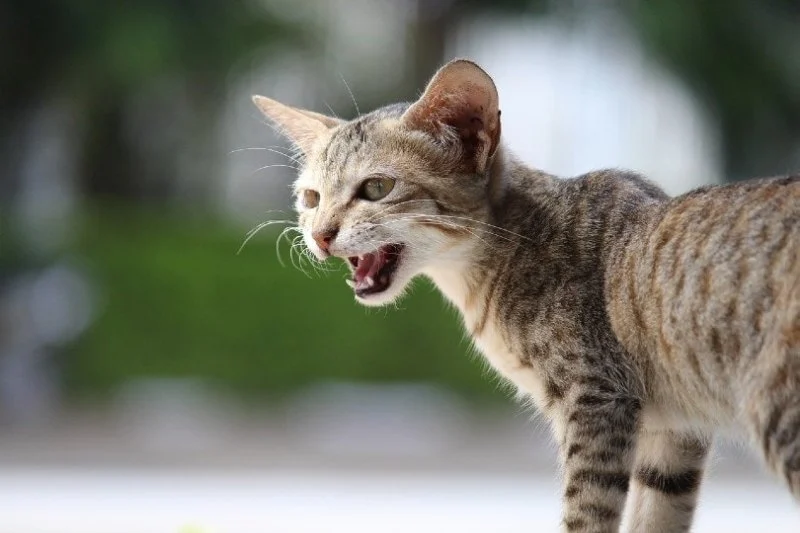
- 1. Understanding Why Cats Yowl
- 2. Common Reasons for Excessive Yowling
- 3. How to Stop Your Cat from Yowling Excessively
- 4. Real-Life Examples of Yowling Solutions
- 5. Tips for a Peaceful Home with Your Cat
1. Understanding Why Cats Yowl
As a pet owner, hearing your cat yowl can be both frustrating and concerning. Unlike meowing, which is often a cat’s way of communicating with humans, yowling is louder, more persistent, and can seem almost like a form of distress. Understanding why your cat is yowling excessively is the first step in solving the issue and bringing some peace to your home.
2. Common Reasons for Excessive Yowling
Excessive yowling can have various causes. Identifying the reason behind the behavior can help you address the root cause effectively.
2.1 Hunger or Thirst
Sometimes, a cat may yowl simply because it’s hungry or thirsty. If the food bowl is empty or if your cat doesn’t have access to fresh water, they might vocalize to signal their needs. Ensuring that your cat’s basic needs are met can often solve this problem.
2.2 Seeking Attention
Cats are independent but also affectionate creatures. If your cat is not getting enough attention, they may resort to yowling to get you to interact with them. If your cat’s emotional needs aren’t being met, they may turn to vocalization to seek your attention.
2.3 Stress or Anxiety
Stress is another common cause of excessive yowling. Changes in their environment, such as a move, new people, or another pet, can cause anxiety and lead to more vocalization. Identifying and removing the source of stress can help reduce their anxiety-driven yowling.
2.4 Medical Issues
Sometimes, yowling can be a sign of a health problem. Cats in pain or discomfort might vocalize to communicate their distress. If your cat’s yowling persists or is accompanied by other symptoms (e.g., lethargy, changes in appetite), it’s crucial to have them checked by a veterinarian to rule out any medical issues.
2.5 Aging and Cognitive Dysfunction
Older cats may experience cognitive dysfunction syndrome (similar to dementia in humans), which can cause confusion, disorientation, and yowling. If your senior cat starts yowling more frequently, this could be a sign of aging-related mental decline.
3. How to Stop Your Cat from Yowling Excessively
Now that you understand the possible causes of excessive yowling, it’s time to take action. Here are some practical tips to help stop your cat from yowling incessantly:
3.1 Ensure Proper Feeding and Hydration
Always keep your cat’s food and water bowls full. If your cat is yowling because they are hungry or thirsty, offering a regular feeding schedule and access to fresh water can prevent this behavior. Consider providing multiple feeding stations if you have more than one pet.
3.2 Offer Enough Attention and Playtime
To reduce attention-seeking yowling, make sure you spend quality time with your cat. Playtime, petting, or simply sitting together can satisfy their social needs. Cats often yowl to get you to interact with them, so regular engagement can help decrease their need to vocalize.
3.3 Create a Calm Environment
If your cat is stressed or anxious, creating a calm and safe environment can help. This could include setting up a quiet space for your cat, using calming pheromones, or avoiding sudden changes that might upset them. If your cat is reacting to external stimuli, such as loud noises or unfamiliar people, try to minimize these triggers.
3.4 Visit the Veterinarian
If you suspect a medical issue is causing the yowling, take your cat to the veterinarian for a thorough checkup. Treating any underlying health problems can often resolve excessive vocalization. Your vet might also suggest behavior modification strategies or medications if needed.
3.5 Address Aging and Cognitive Dysfunction
If your cat is elderly, consult with your veterinarian about cognitive dysfunction syndrome. There are ways to manage this condition, including dietary changes, medication, and creating a structured environment to help your cat feel more secure.
4. Real-Life Examples of Yowling Solutions
Many cat owners have successfully managed their cats’ yowling by addressing the root cause of the issue. One pet parent shared how their cat began yowling loudly every night after a move to a new home. After consulting with their vet, they discovered their cat had developed anxiety from the change. By creating a more familiar space and offering calming treats, the yowling decreased significantly.
5. Tips for a Peaceful Home with Your Cat
To ensure a peaceful relationship with your cat and avoid excessive yowling, try the following tips:
- Provide a regular feeding schedule and keep their environment consistent.
- Spend quality time with your cat, including interactive play sessions.
- Ensure your cat has a comfortable and safe space to retreat to when needed.
- Monitor your cat’s health and take them to the vet for regular check-ups.
By following these steps, you can reduce your cat’s excessive yowling and create a more peaceful environment for both you and your feline companion. For more tips on pet care and health, visit Omnia Pet for trusted advice and products to enhance your pet’s well-being.



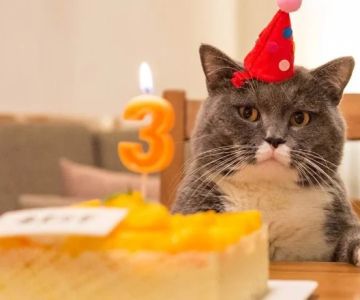
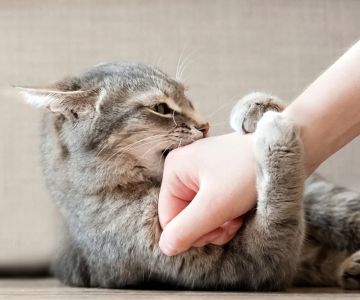
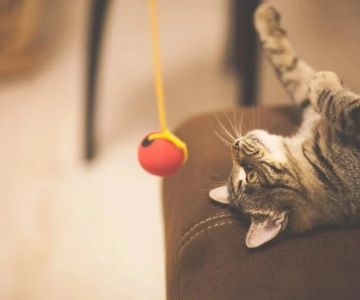
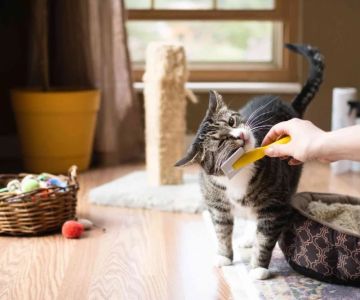

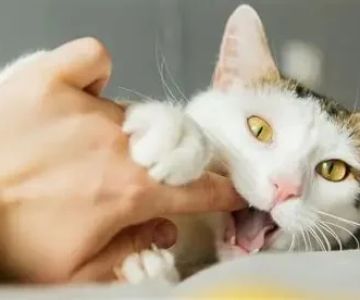
 Hollywood Feed4.0 (184 reviews)
Hollywood Feed4.0 (184 reviews) Brew Biscuits5.0 (2 reviews)
Brew Biscuits5.0 (2 reviews) All Friends Animal Hospital4.0 (446 reviews)
All Friends Animal Hospital4.0 (446 reviews)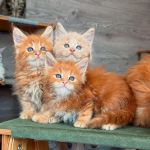 Kittylandkittens LLC0.0 (0 reviews)
Kittylandkittens LLC0.0 (0 reviews) Village Animal Clinic4.0 (212 reviews)
Village Animal Clinic4.0 (212 reviews) Rift Lake Aquatics4.0 (165 reviews)
Rift Lake Aquatics4.0 (165 reviews) Understanding Pet Insurance: What Does It Actually Cover?
Understanding Pet Insurance: What Does It Actually Cover?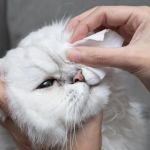 How to Keep Your Kitten's Eyes Clean and Free of Discharge
How to Keep Your Kitten's Eyes Clean and Free of Discharge The Truth About Heartworm Disease: Prevention is Cheaper Than Cure
The Truth About Heartworm Disease: Prevention is Cheaper Than Cure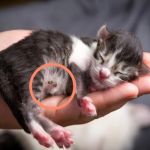 Why Is My Kitten's Belly Button Showing? | Omnia Pet
Why Is My Kitten's Belly Button Showing? | Omnia Pet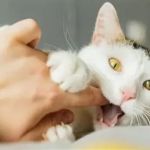 Why Does My Cat Bite Me Gently? Love Bites Explained
Why Does My Cat Bite Me Gently? Love Bites Explained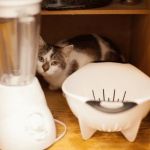 How to Stop Your Kitten from Getting into Cabinets
How to Stop Your Kitten from Getting into Cabinets